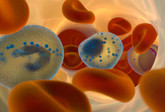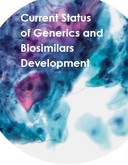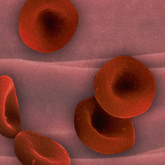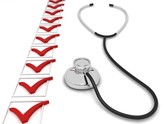Biosimilars/Research
Distinct suffixes will aid biosimilar competition, says new research
The differential naming of originator and biosimilar products supports accurate pharmacovigilance and promotes biosimilar uptake, finds a literature review recently published in GaBI Journal [1].
Real-world data on switching of etanercept biosimilars
Real-world and clinical data from different studies involving switching to etanerept biosimilars were presented at the European Congress of Rheumatology 2019 (EULAR 2019) [1].
Long-term safety results for adalimumab biosimilar
ABP 501 is an adalimumab biosimilar which was compared to reference adalimumab in a 24-week phase lll study demonstrating equivalent efficacy and similar safety and immunogenicity [1]. The results of this clinical trial, along with the totality of evidence from analytical and biofunctional evaluation, lead to the approval of this adalimumab biosimilar for rheumatoid arthritis in the European Union and the US. ABP 501 is marketed as Amgevita in Europe and other markets. However, it will not be available in the US until 2023 due to an agreement between Amgen, the developer of the biosimilar, and AbbVie who manufactures the originator product, Humira (adalimumab) [2].
Positive phase III data for adalimumab copy biologicals
Positive phase III data for adalimumab copy biologicals has been presented at the European Congress of Rheumatology 2019 (EULAR 2019) [1].
Positive results for rituximab non-originator and copy biologicals
Positive results for the rituximab non-originator biological BCD-020 (AcellBia) and for the rituximab copy biological HLX01 (Hanlikon) have been presented at the European Congress of Rheumatology 2019 (EULAR 2019) [1, 2].
Positive phase III results for trastuzumab biosimilar HD201
Singapore-based Prestige BioPharma (Prestige) announced on 24 June 2019 positive phase III data for its trastuzumab biosimilar, HD201. The results, according to Prestige, ‘confirm the similarities between HD201 and trastuzumab’.
Positive phase III results for trastuzumab follow-on biological Zedora
Results of a post-marketing study of Biocon and Mylan’s trastuzumab biosimilar Zedora (MYL-1401O) compared to Herceptin (trastuzumab) has shown equivalent safety data to the originator biological in breast and gastric cancer, according to the authors [1].
Real-world data confirms safety of infliximab biosimilar CT-P13
Positive real-world data has been presented for Celltrion’s infliximab biosimilar CT P13 at the European Congress of Rheumatology 2019 (EULAR 2019).
How local policy measures and practices influence originator biological and biosimilar market dynamics in Sweden
The licensing of biologicals, including biosimilars, in Europe is centralized via the European Medicines Agency (EMA). Subsequently, individual European Member States are responsible for pricing, reimbursement and policies on market entry and use of medicines. This decentralized responsibility results in diverging approaches towards market entry and uptake of biosimilars and contributes to variation in the use of biosimilars across European countries, and even within countries differences in biosimilar uptake levels exist. The latter is the case for the 21 counties of Sweden, implying that decisions taken by their county councils play a role in market access of biosimilars, alongside policy measures and incentives provided at the national level.
Recommendations for similar biotherapeutic products published by Latin American MS experts
Recommendations for the use of similar biotherapeutic products for multiple sclerosis (MS) have been issued by a group of experts from Argentina, Bolivia, Brazil, Chile, Colombia, Costa Rica, Ecuador, Mexico, Panama, Peru, Uruguay and Venezuela.
Positive phase I results for Bio-Thera’s bevacizumab copy biological
China-based Bio‑Thera Solutions (Bio‑Thera) has published phase I results for its candidate bevacizumab copy biological, BAT1706 [1].
Biosimilars to replace older biologicals for IBD
Biosimilars will gradually replace older biological drugs for IBD, however, issues – such as the safety of multiple switches – remain, says a recent assessment published in Digestive Diseases and Sciences [1].
Positive results for rituximab copy biological IBI301
US-based pharma giant Eli Lilly, and its partner China-based Innovent Biologics (Innovent), announced on 7 May 2019 positive data from two clinical studies of their rituximab copy biological (IBI301) compared to Rituxan (rituximab).
GaBI Journal is the number one journal publishing on biosimilars
The first ever global bibliometric analysis on biosimilars finds that GaBI Journal is the number one journal publishing on biosimilars. The study also shows that research on biosimilars is increasing, but is currently dominated by countries in the West such as the USA [1].
BiosanaPharma starts phase I trial for omalizumab biosimilar in Australia
Dutch biosimilars developer BiosanaPharma announced on 21 February 2019 that it had received permission from the Australian Bellberry Human Research Ethics Committee (HREC) to start a phase I clinical trial of their first pipeline product, omalizumab.
ASCO/ASH give recommendations for biosimilar ESAs
Recommendations for biosimilar erythropoiesis-stimulating agents (ESAs) in the management of cancer-associated anaemia have been issued by the American Society of Clinical Oncology (ASCO) and the American Society of Hematology (ASH).
Biosimilars education still needed for US and EU clinicians
A review of the literature has concluded that healthcare providers are still cautious when it comes to biosimilars and that clinician-directed education is still needed to increase biosimilar knowledge, facilitate prescribing changes and increase use of biosimilars [1].
Pharmacokinetic assessment of biosimilar therapeutic monoclonal antibodies
Comparison of the clinical pharmacokinetic (PK) profile of a biosimilar with that of the reference product is an important step in the development of biosimilars. In a recent review, Ishii-Watabe and Kuwabara outline key considerations for the comparative studies required for biosimilar development, focusing on the clinical PK profiles of biosimilar therapeutic monoclonal antibodies (mAbs) and their reference products [1].
ASCO/ASH update ESA recommendations
The American Society of Clinical Oncology (ASCO) and the American Society of Hematology (ASH) have updated their recommendations on the management of cancer-associated anaemia with erythropoiesis-stimulating agents (ESAs).
Biosimilar comparability assessment
In a recent review, Ishii-Watabe and Kuwabara summarize the principles of biosimilar development and outline key considerations for studies comparing a biosimilar with its reference product [1].





















